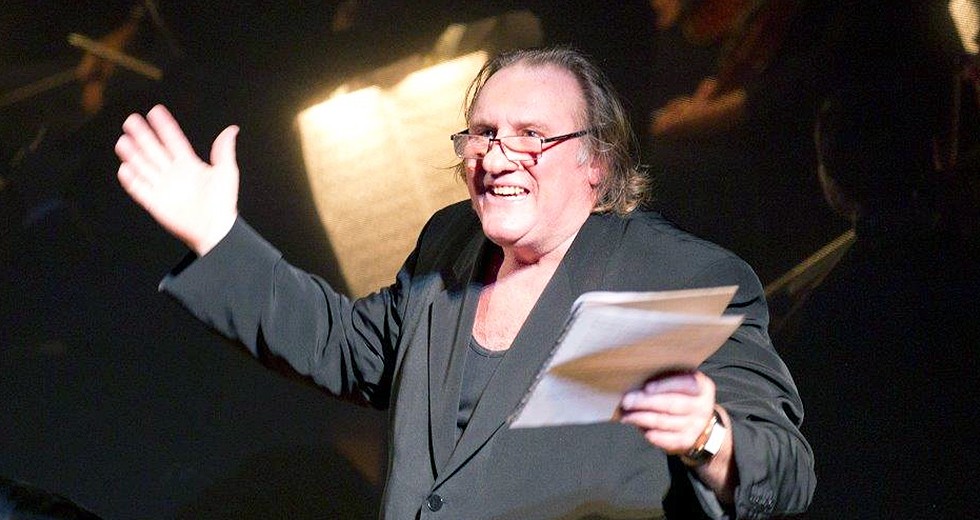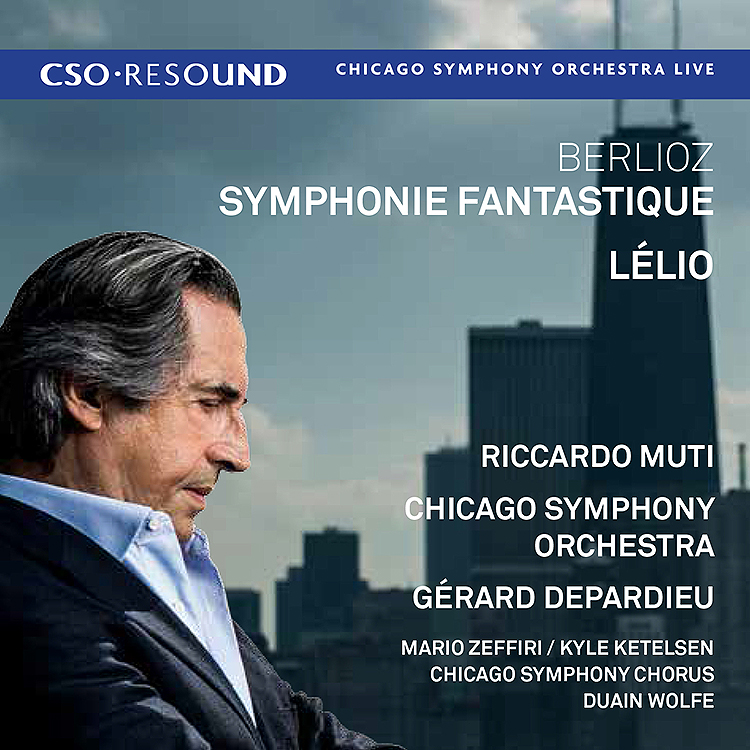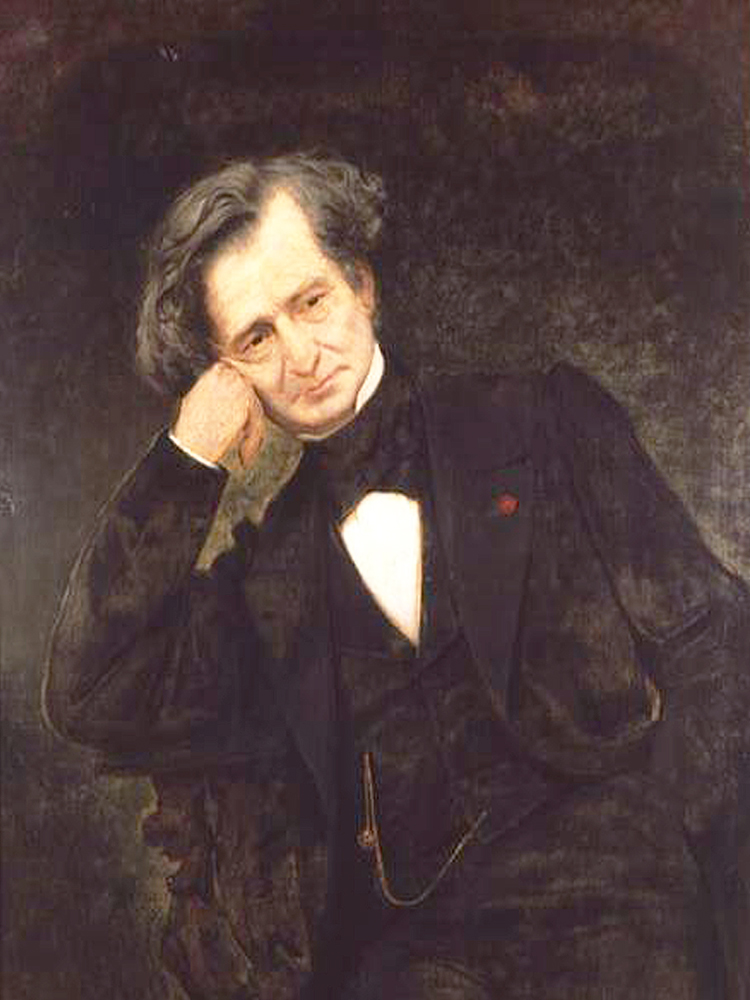
Virtually all of the world’s major orchestras (and some minor ones) have recorded Berlioz’s Symphonie fantastique, a much-loved staple of the repertory, at least once. Given the dozens of versions already flooding the market, why would Riccardo Muti and the Chicago Symphony Orchestra decide to make it the focus of the ensemble’s latest release on its record label, CSO Resound? The answer can be found by looking at the other work on the album: Lélio, ou le retour à la vie (“Lélio, or The Return to Life”).
Berlioz wrote the now-obscure work in 1831 as a sequel to its much better-known counterpart and intended the two to be performed together in semi-staged fashion as one integral creation. “Together, they formed the ‘Episode in the Life of an Artist’ — a daring mix of autobiography and fantasy, symphony and theater, music and literature, that is truly sui generis, a unique work of creative imagination and self-expression,” wrote CSO program annotator, Phillip Huscher, in his liner notes for the release.
Despite the composer’s intentions, Symphonie fantastique is typically presented on its own, and Lélio has been all but forgotten. Seizing the opportunity to reacquaint listeners with Berlioz’s massive dual work, Muti chose to perform them together for his first set of subscription concerts after taking over as CSO music director in September 2010. Now, five years later, a two-disc CSO Resound recording edited from those four concerts will go on sale Sept. 11. Physical copies of the album, Muti’s fifth on CSO Resound, will be available from the CSO’s online store and another online outlets, as well as brick-and-mortar stores such as Barnes & Noble. It also will be available digitally on about 20 download and streaming platforms, including iTunes, Spotify and Rdio. “We’ve always tried to be everywhere that we can,” said Marc Geelhoed, the CSO’s manager of audio media.
Decisions about what concerts will become live recordings are made by Muti and the CSO’s media committee of staff and musicians. “We just sit down and discuss it,” said Geelhoed. “There’s not a moment where a concert is really great, and we’ll decide right that night that something will be a CSO Resound album in six months. It’s a much more considered and deliberate approach.” While a few programs have been targeted in advance as CSO Resound candidates, such decisions are usually made afterward.
In the case of this album, it took five years from performance to release in part because the CSO wanted to focus first on other aspects of the relationship between Muti and the orchestra, such as the Italian-born conductor’s celebrated affinity for the music of Giuseppe Verdi, and the CSO’s previous composers-in-residence, Anna Clyne and Mason Bates. “It’s a challenge to think about what you can release that is new and exciting but also hasn’t been done a million times,” Geelhoed said. “There are obviously a lot of Symphonie fantastiques but there are not a lot of Lélio recordings, so that was something that appealed to Maestro Muti, as well as the musicians and staff as a recording. I think it was the unique combination of the repertoire.”
Making this program an even more enticing choice was the presence of the orchestra’s world-renowned chorus as well as famed French actor Gérard Depardieu, who served as the narrator. “He is a fantastic French romantic actor — not just somebody who could get up and read these lines but somebody who could really bring the character of that theatrical tradition to Orchestra Hall,” Geelhoed said. “It was really exciting at those concerts, because he wasn’t using a microphone. He was declaiming this unamplified.”
The recording was overseen at Orchestra Hall by Christopher Willis, a Grammy Award-winning, Chicago-based engineer, and produced by David Frost, a highly respected, New York-based producer, and winner of 14 Grammys, including one for Classical Producer of the Year for composer Maria Schneider’s album, “Winter Morning Walks” (2013).
While Berlioz was in the thrall of Irish actress Harriet Smithson when he wrote Symphonie fantastique, Lélio was inspired by the composer’s discovery that his fiancée had left him for another man. To help assuage his emotional pain, he threw himself into this composition, in which he took six works he had previously composed, like his Fantasy on Shakespeare’s “The Tempest” from 1830, and linked them with theatrical monologues. In this unusual musical hybrid, Lélio is essentially the composer, who awakens from the opium-induced visions of the “Symphonie” and, after reflecting on his lovelorn life, finds solace and redemption in music.
“The audience will see that the Fantastique was not conceived as a showpiece to end a concert but as the prologue to a deeper and much more intense work,” Muti said in a 2010 interview with the Chicago Tribune. “Lélio justifies the symphony. To hear the two pieces together will, I think, be a great and very moving revelation for many listeners.”
In Berlioz’s conception, the orchestra was to play behind a curtain in Lélio, suggesting that the audience is hearing the music through the composer’s imagination, and then the barrier would be raised for the finale as the music takes precedence. As the album’s liner notes point out, the CSO followed the composer’s directions during its performances, a decision that inevitably affected the recording. Depardieu’s voice changes in intensity based on his stage movements, and the orchestra sounds a bit farther away during Lélio than it might in a studio recording.
This album featuring Symphonie fantastique and Lélio is the 17th on the CSO Resound label, which the orchestra began in 2007 as a response to the upheaval in the music industry and as a way to secure more independence in its recording choices. All of its albums since then have been released on CSO Resound, except for the orchestra’s 2012 recording of John Williams’ score for Steven Spielberg’s film, “Lincoln”; a recording of Williams’s suite from “Memoirs of a Geisha” with Williams and Yo-Yo Ma, the CSO’s Judson and Joyce Green Creative Consultant, and another with Ma and the Silk Road Ensemble (“New Impossibilities”), which all were released on the Sony label.
What’s next on CSO Resound? Geelhoed said, “We’re always discussing and thinking through options.”
Kyle MacMillan, former classical music critic of the Denver Post, is a Chicago-based arts writer.
TOP: During a CSO concert in September 2010, Gérard Depardieu narrates Berlioz’s Lélio, featured on the latest CSO Resound release. | Todd Rosenberg Photography

